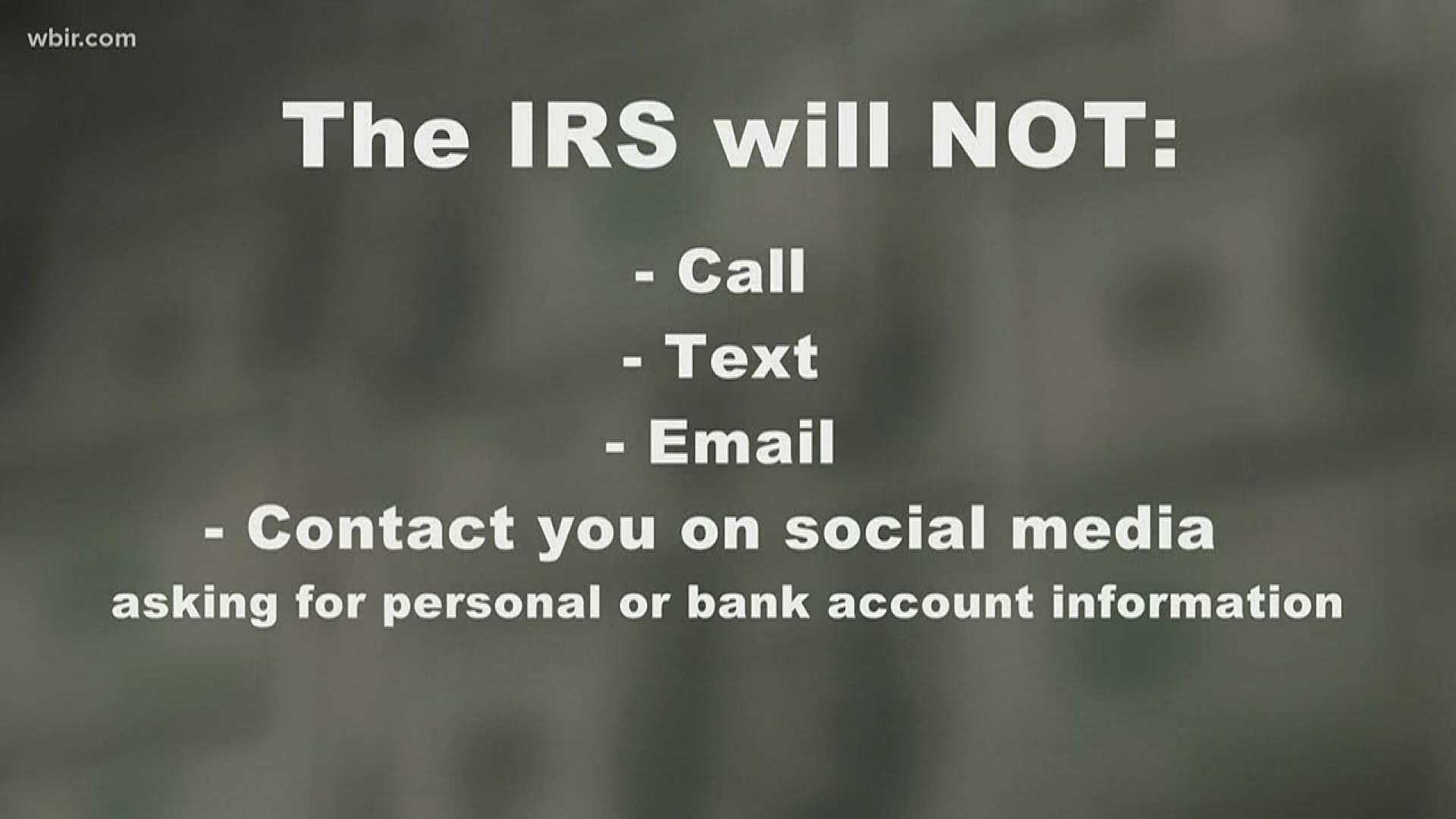KNOXVILLE, Tenn. — Millions of Americans are starting to receive stimulus checks via direct deposit under the CARES Act. According to police, you should be on the look-out for scammers.
Even though our nation is going through a tough time, crime doesn't stop. Criminals may use this as an opportunity to take advantage of you. According to Knoxville Police, their goal is to exploit, scam and defraud you.
“In this case, they are going to target anyone who will be receiving this economic relief check, this stimulus check,” said Knoxville Police Investigator Rhett Carter. “It can happen to any and all.”
According to police, these types of crime peak when scammers find new opportunities to strike. Investigator Carter believes most scams are obviously fake, but some can sound real.
“They use intimidation and fear tactics to intimidate you to act quickly,” said Carter. “That's why it’s important to remember what we've been saying the IRS is not going to contact you over the phone, or email.”
Here are the facts:
The IRS will not call, text, email or contact you on social media asking for personal or bank account information. If you receive an email, text or call from someone claiming to be with the IRS requesting updated bank account and routing information, don't tell them anything. It’s a scam.
Also, if you receive a "check" in the mail now, for an odd amount, especially one with cents, or one that requires you to verify the check online or by calling a number, it's fake. The IRS won't start mailing checks until May.
If you receive text messages or emails claiming that you can 'get your money faster' or that you have to "sign-up" for your relief check, delete them and do not click on any links. There is nothing to sign up for and no one has early access to this money.
If someone tries to scam you, call police and the Federal Trade Commission to report it.
Before you give away any personal information, verify the source. Remember, if something sounds suspicious or too good to be true, it probably is.

